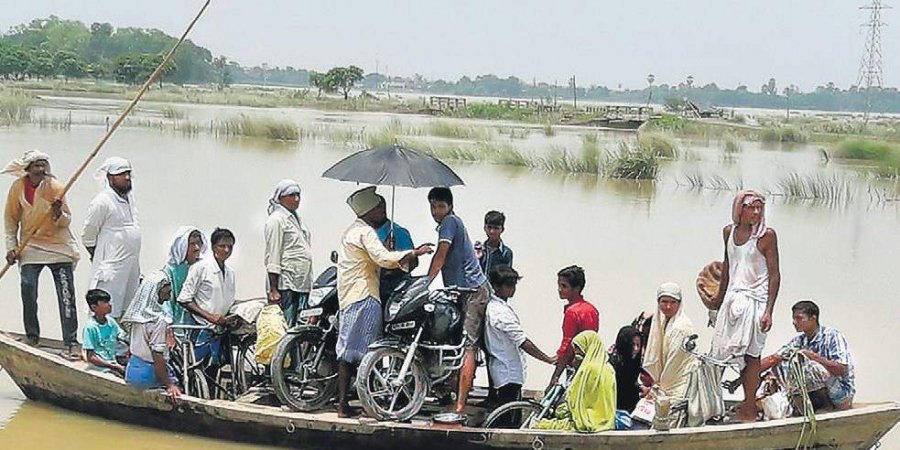As COVID-19 wreaks havoc around the world – leading to hundreds of thousands of deaths, untold suffering and widespread fear – we are responding to the immediate need of hundreds of families fighting starvation, by providing relief in the form of dry ration!
The impact of COVID-19 is going to be far reaching and is going to be felt by the the poorest, the most vulnerable and marginalized for a long time to come! In the given circumstances, we are trying our best to protect children from its impact.
Here are just some of the many ways in which it will affect children from the most vulnerable sections and under resourced government schools in our country – schools that are still the only option for the country’s majority:
The number of ‘drop-out’ children will increase significantly as parental fears and confusions over whether to send children to school or not keep mounting.
Number of children who will be malnourished or go hungry will drastically increase. Being unable to access schools will deprive them of mid-day meals, which is often the only decent meal available to them!
Besides fulfilling teaching duties and providing care to children in school, teachers will be required to support government’s humanitarian and healthcare response, in the larger community.
Many private schools are likely to shut down resulting in a movement of children to already burdened government schools.
Children of migrant laborers that have returned home will require special supportand care, with government schools being expected to fulfill this responsibility.
Vigilance, maintenance of hygiene and monitoring the health of children in schools is going to be an inevitable part of the teachers’ duty for several months to come.
Children form a very vulnerable part of any society and the COVID-19 pandemic has put their education, their health and overall well-being in great danger. Keeping them safe in schools, accessing mid-day meals and learning, in the face of this crisis, is a very real challenge!

You can hep us meet this challenge by supporting our Aripana Fellows – carefully selected youth leaders from the community, who will work to tackle this crisis and its impact on children and government schools of North Bihar.
In this ancient cultural region of Mithila, lying between the lower ranges of the Himalayas and the Ganges – the problem of poor quality of education is compounded by highly endemic poverty and the fact that 76% population lives under the recurring threat of flood and devastation due to Kosi, Kamla Balan, Gandak and other Himalayan rivers. This has far reaching consequences on the children and youth of the region – with limited opportunities for meaningful learning and growth, their potential remains untapped and their dreams buried forever. A disaster like COVID-19 has pushed the children and youth of this region even further from accessing quality education. The effects of this will be far reaching, making generations to come struggle, to build a life they dream of!

Through the Aripana Education Fellowship, the Aripana Fellows will work to support government schools in this struggle against COVID-19 and its disruptive effects on the education and the lives of children.
Your contribution, big or small means a lot to us, and is an irreplaceable stepping stone in this effort, without which the children will be pushed several steps backward and take years to recover.
If you believe in what we do, please also share this story with your friends and relatives. This is as much an awareness campaign for a cause as it is a fundraiser.
Here is a little more information about Aripana Foundation:
We are a Darbhanga based not for profit organization that primarily works in North Bihar and is committed to the overall development of this region. At present our work is particularly focused on the improvement of school education and we are proud to partner with organizations such as Wipro (on their Sustainability Education Program for schools of North Bihar), Pratham (on developing English-Maithili bilingual books for early readers) and AI4Bharat (An IIT Madras backed voluntary community of Artificial Intelligence experts)and Google on improving Google Input Tool for the Maithili language.
Recognizing the importance of the role of mother tongue in education, we have played a pioneering role in creation of English-Maithili bilingual books for early readers / little children and have distributed these books in classroom-libraries in local government schools, to encourage children’s interest in reading and help them achieve appropriate literacy levels. With strong community support, we have published 20 books till now and aim to publish 80 more over the next year or so. See coverage in India Today.
You can also buy our English-Maithili bilingual books from the Aripana Foundation Website OR Amazon (post the lock-down period).
Know more through our Facebook Page. Find us on Instagram too with latest updates.Follow us as @AripanaF on Twitter.
Thank you for taking interest in our efforts. We hope you will join us in this fight against the pandemic – and in this fight to keep our children thriving.
We look forward to your support with gratitude.
To donate to our humanitarian relief response please visit: https://rzp.io/l/SupportAripanaFoundation


